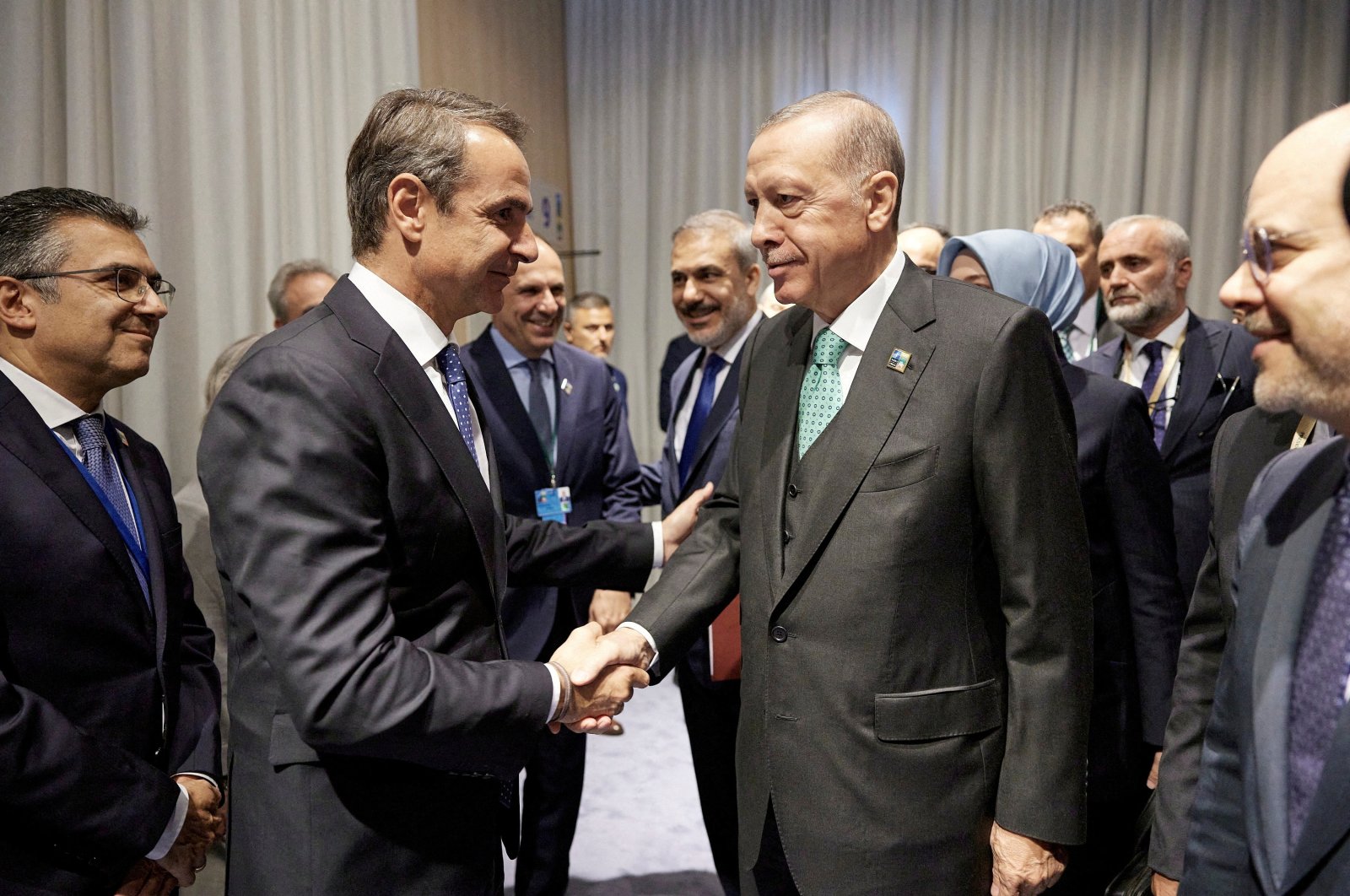Physical Address
Indirizzo: Via Mario Greco 60, Buttigliera Alta, 10090, Torino, Italy
Physical Address
Indirizzo: Via Mario Greco 60, Buttigliera Alta, 10090, Torino, Italy

President Recep Tayyip Erdoğan on Thursday arrived in Greece to open a new chapter and pursue the positive momentum between the two neighbors after years of tension.
Erdoğan and Greek Prime Minister Kyriakos Mitsotakis will co-chair the 5th meeting of the Türkiye-Greece High Level Cooperation Council to review all aspects of bilateral relations, and to address steps to improve cooperation, according to Türkiye’s Communications Directorate.
The president will also meet with his Greek counterpart. Katerina Sakellaropoulou.
Regional and international developments will be on the agenda of discussions.
In an interview with Greek daily Kathimerini a day before his visit, Erdoğan said he was seeking a “new chapter” in relations on the basis of “win-win” principles.
The Turkish leader said communication channels with Greece had been “revived” and that he looked forward to signing a declaration of bilateral friendship with Greece.
“Kyriakos my friend, we do not threaten you if you do not threaten us,” Erdoğan said.
“If differences are addressed through dialogue and common ground is found, this is to the benefit of all,” he added.
Mitsotakis, the conservative prime minister who won a second four-year term in June, has also shown readiness to reduce tension with Ankara.
The two leaders previously met in September in New York on the sidelines of the UN General Assembly.
Erdogan was last in Athens in 2017, when he met Mitsotakis’ leftist predecessor Alexis Tsipras.
Moreover, Greek migration minister Dimitris Kairidis this week said the two countries’ coastguards had been cooperating smoothly on migration in past months.
He did not rule out an agreement with Ankara to station a Turkish officer on the Greek island of Lesbos, and a Greek officer at the western Turkish port of Izmir.
Türkiye and Greece have often locked horns over several issues, including competing claims to jurisdiction in the Eastern Mediterranean, overlapping claims over their continental shelves, maritime boundaries, airspace, energy, the ethnically split island of Cyprus, the status of the islands in the Aegean Sea and migrants. Tensions flared in 2020 over exploratory drilling rights in areas of the Mediterranean Sea – where Greece and Greek Cyprus claim exclusive economic zones – leading to a naval standoff.
Despite saying that it has no intention of entering an arms race with Ankara, Athens has also been carrying out an ambitious rearmament program, building a military presence on the disputed Aegean islands since the 1960s in violation of postwar treaties and tightening its defense cooperation with the United States. The purchase of fighter jets from the U.S. and the upping of defense budgets are meant to counter the protection of Turkish interests in the Eastern Mediterranean. Greece says it needs to defend the islands against a potential attack from Türkiye, but Turkish officials said continued militarization of the islands could lead to Ankara questioning their ownership. Türkiye has often warned against such moves and called instead for dialogue to resolve their disputes.
Eventually and as part of Türkiye’s peace diplomacy based on normalizing ties with countries it had strained relations, the two countries decided to improve their ties. Relations have especially improved since February, when Greece sent rescuers and aid to Türkiye after a massive earthquake killed at least 50,000 people.